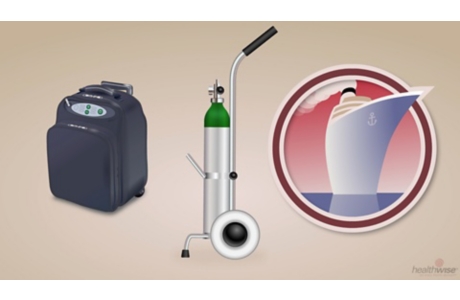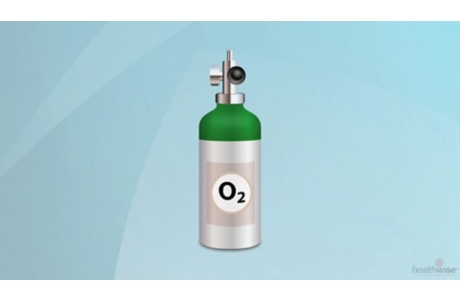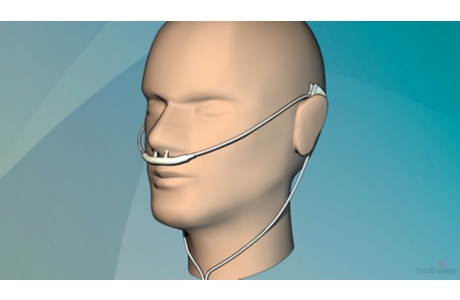Oxygen Therapy
Topic Overview
Oxygen therapy increases the amount of oxygen in the lungs and the bloodstream. You may need oxygen therapy if there are signs that the cells of your body are not getting enough oxygen.
You may use oxygen therapy at home or in the hospital if you have low oxygen levels in your blood because of pneumonia, lung cancer, COPD, ARDS, or other conditions. You can choose between a number of delivery systems and breathing devices.
Oxygen delivery systems
Oxygen delivery systems include:
- Concentrators, which take oxygen from the air. These machines are electrically powered and fairly heavy [about 30 lb (13.6 kg)]. Portable concentrators, which you can use when you travel, are also available. Concentrators are often less expensive than other delivery systems.
- Cylinders of oxygen.They come in several sizes. The largest are too heavy to move around. Smaller cylinders can be carried and provide about 5 hours of oxygen. Cylinders cost more than concentrators but less than liquid oxygen.
- Cylinders of liquid oxygen. Compared to cylinders of oxygen, liquid oxygen cylinders contain more oxygen, weigh less, and are easier to use. But they cost the most.
You can breathe your oxygen through a face mask or a flexible plastic tube inserted in your nostrils (nasal cannula).
- The nasal cannula gives you the greatest freedom for moving around and talking. The amount of oxygen you actually breathe may be less than with other methods of delivery.
- A face mask is less portable and gets in the way of talking and eating.
Choose your oxygen delivery system based on your ability to move around. People who are homebound may find an oxygen concentrator gives them the best combination of convenience and cost.
In all oxygen delivery systems, the risk of fire or explosion is high if you use oxygen around lit cigarettes or an open flame. If you or those who care for you smoke, oxygen therapy may not be a good option.
Current as of: June 9, 2019
Author: Healthwise Staff
Medical Review:E. Gregory Thompson MD – Internal Medicine & Adam Husney MD – Family Medicine & Hasmeena Kathuria MD – Pulmonology, Critical Care Medicine, Sleep Medicine
This information does not replace the advice of a doctor. Healthwise, Incorporated, disclaims any warranty or liability for your use of this information. Your use of this information means that you agree to the Terms of Use. Learn how we develop our content.




